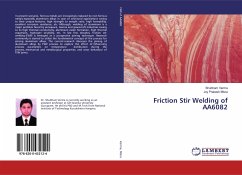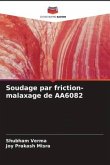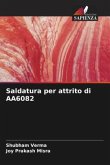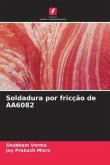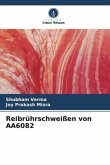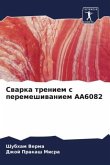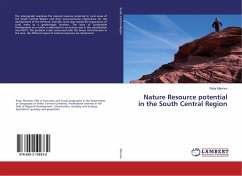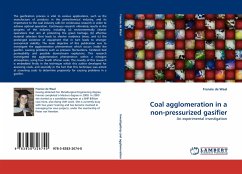In present scenario, ferrous metals are increasingly replaced by non-ferrous metals especially aluminium alloys in case of structural applications owing to their unique features: high strength to weight ratio, high formability, excellent corrosion resistance, etc. Although, welding of aluminium is a major problem faced by aerospace, marine and spacecraft industries owing to its high thermal conductivity, aluminium oxide formation, high thermal expansion, hydrogen solubility, etc. In last few decades, friction stir welding (FSW) is emerged as a prospective joining technique. Research community is started to utilize the fundamental concept of the process for joining aluminium alloys. The current research discusses the joining of aluminium alloys by FSW process to explore the effect of influencing process parameters on temperature distribution during the process, mechanical and metallurgical properties, and wear behaviour of FSW joints.
Bitte wählen Sie Ihr Anliegen aus.
Rechnungen
Retourenschein anfordern
Bestellstatus
Storno

